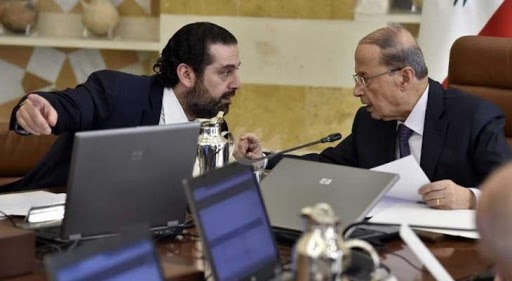Speaking in an interview with the website of the Strategic Council on Foreign Relations, Hassan Ajorloo said: In this regard, in recent years we have been witness to the fact that neither Mr. Hassan Diab nor Mr. Saad Hariri have succeeded in forming a government which seems that the issue includes some internal reason as well as some external ones.
He continued: The first factors are the internal factors; because Lebanon’s economic problems have been exacerbated in recent years by a number of factors, including international sanctions against some Lebanese groups, such as the Hezbollah, and in particular the Syrian government’s sanctions under the Caesar’s Act. We should note that the bulk of Lebanon’s trade is with the Syrian government, and except for the occupied Palestine, Lebanon’s only neighbor is the Syrian government.
The expert also referred to the outbreak of the Coronavirus and its effects on the Lebanese economy and the explosion of the port of Beirut, and said that those factors also contributed to the worsening of the situation in Lebanon.
According to Ajorloo, the political differentiation in Lebanon is also one of the most important and influential issues in the country’s political crisis, adding: After the civil war, this political difference is now nearing its peak.
The expert, stressing that Lebanon can no longer tolerate a civil war, said: Therefore, this distinction between political currents has led to a crisis and has led to political deadlocks.
Further elaborating, Ajorloo noted that political difference between Michel Aoun and Saad Hariri as the two main actors in the formation of the government, who should work together, has also been further exacerbated.
He described the important factor that could lead to the formation of a government in Lebanon as the approximate consensus of most Lebanese political groups and said: It seems that Saad Hariri disagrees not only with the president but also with most factions over the formation of the government and seeks to use political affiliations and include its intended members in the cabinet without general agreement.
Ajorloo continued: This is while the majority of the Lebanese parliament is in the hands of the pro-March 8 forces and Saad Hariri does not have political support as one of the March 14 forces, but regional developments have made him the incumbent prime minister.
The expert also explained about international reasons, saying: Lebanon has always been a place of conflict between regional and international powers; especially under the status quo, the actors in this country are very influential.
He went on to point out that the level of differences between the international actors over Lebanon seems to have deepened and added: Those gaps and differences have prevented the major powers from reaching an agreement on the Lebanese issue. In the past, Lebanon was at a point where it was able to overcome the crisis and form a government, but now the gaps are too great to go through easily.
Ajorloo stressed: A Palestinian writer has rightly described Lebanon as a Middle East arena because regional and international disputes are emerging in Lebanon. He added that if a government is formed in Lebanon, it indicates that there is a possibility of an agreement between regional and international powers, but if they do not reach an agreement on the formation of a government, it indicates a deep crisis in the region.
The expert on the Middle East affairs said: The intense sabotage of Saudi Arabia and the United Arab Emirates on the one hand and the activation of the United States to prevent the presence of forces close to the Islamic Republic of Iran, especially Lebanese Hezbollah, in the government show the depth of regional and international differences.
He continued: Tensions in the region between Tehran and Riyadh have intensified and most agreements have reached a deadlock.
Referring to the French government’s efforts to resolve the political crisis in Lebanon, Ajorloo said: Of course, those efforts are also in line with the Arab-Western goals, and removing Hezbollah from power is still on the agenda, but in a more gradual manner.
The expert on the Middle East affairs stressed that the French plan does not seem to be acceptable to either side.
In conclusion, he said: Even if the news of the formation of the Lebanese government is published, it will be a weak and unsupported government due to the internal, regional and international environment. Because the situation in Lebanon is very sensitive, both inside and outside the region, and this issue has made it impossible to form a government that can solve Lebanon’s deep economic, political and social challenges.










0 Comments